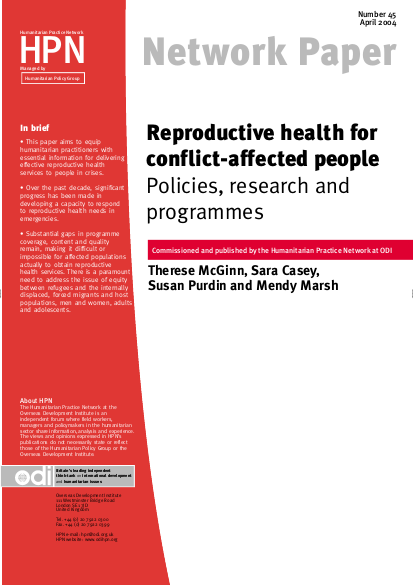Policies, Research and Programmes

The humanitarian community first became aware of the reproductive health needs of refugees and other war-affected people during the ethnic conflicts in Bosnia and Rwanda in the early to mid-1990s. Since then, significant progress has been made in developing a capacity to respond to reproductive health needs in emergencies. This paper describes advances in policy; outlines what we know about the magnitude of reproductive health needs; and explores the lessons for programming. It aims to equip humanitarian practitioners with essential information for delivering effective reproductive health services to people in crises.